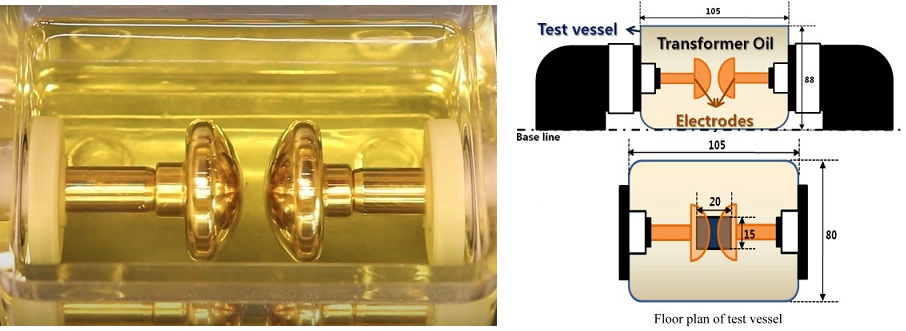Understanding Dielectric Transformer Oil: Necessary Advantages and Uses
Dielectric transformer oil offers as a crucial component in the procedure of electric transformers and high-voltage devices, functioning primarily as an insulating medium. As we discover the multiple benefits and usages of dielectric transformer oil, one must consider how its role affects not simply tools reliability, however also broader functional factors to consider.
What Is Dielectric Transformer Oil?
Exactly what is dielectric transformer oil? Dielectric transformer oil is a customized protecting fluid made use of in electric transformers and various other high-voltage electrical equipment. Its key function is to supply electrical insulation and facilitate warmth dissipation, ensuring the reliable and secure operation of transformers. Unlike conventional oils, dielectric oil is especially created to have high dielectric strength, which enables it to endure considerable electrical tension without performing electrical energy.
Typically derived from mineral oil or synthetic sources, dielectric transformer oil satisfies stringent market standards for purity and efficiency. Its chemical structure is very carefully developed to reduce the danger of oxidation and degradation with time, which is crucial for keeping the oil's protecting residential or commercial properties.
In enhancement to its shielding characteristics, dielectric transformer oil offers as a coolant, transferring and taking in warmth generated by electric elements throughout procedure. Generally, dielectric transformer oil is an important element in the reputable and risk-free operation of electric framework.

Trick Advantages of Dielectric Oil
While dielectric transformer oil offers vital features in electric systems, its advantages expand beyond mere insulation and air conditioning. One of the primary benefits of dielectric oil is its high dielectric stamina, which successfully prevents electric malfunction, making sure the safe procedure of transformers and other high-voltage devices. This residential or commercial property is critical in maintaining the integrity and durability of electrical systems.
Additionally, dielectric oil possesses superb thermal conductivity, allowing for efficient heat dissipation. This characteristic minimizes the danger of getting too hot, hence expanding the life-span of transformers and decreasing upkeep prices. The oil's chemical security and resistance to oxidation contribute to its sturdiness, making sure regular performance over time.
Another considerable benefit is its ability to suppress arcing and corona discharge, which can harm electrical elements. By offering a secure medium for electrical power transfer, dielectric oil boosts functional safety and security.

Applications of Dielectric Transformer Oil
Dielectric transformer oil plays a pivotal function in numerous applications within the electric market, primarily due to its distinct protecting and cooling buildings. Among its primary uses try this website is in power transformers, where it offers to facilitate and insulate internal components heat dissipation. This is essential in maintaining operational efficiency and long life.
Along with power transformers, dielectric oil is additionally utilized in distribution transformers, guaranteeing safe and dependable power circulation. Its high dielectric stamina prevents electric discharges, thereby minimizing the danger of failures and enhancing system integrity. In addition, dielectric transformer oil is used in activators and capacitor financial institutions, where it performs comparable features, safeguarding sensitive tools from electrical break down - waste transformer oil.

Maintenance Considerations
Correct upkeep click for more of dielectric transformer oil is important to make certain optimum performance and long life of electric equipment. Normal tracking of the oil's physical and chemical buildings is critical to find any type of degradation that can impair the insulation and cooling down abilities. Trick specifications to assess consist of moisture web content, acidity, and dielectric stamina.
Periodic tasting and laboratory evaluation can identify the visibility of contaminants such as liquified gases, particulates, and oxidation byproducts. These analyses aid in identifying the oil's problem and whether it requires treatment or substitute. Filtering systems can be used to remove particulates and wetness from the oil, recovering its insulating properties and prolonging its life explanation expectancy.
In addition, preserving correct operating temperature levels is vital; too much heat can speed up oil deterioration (electrical insulating oil). Carrying out temperature level monitoring systems can assist in identifying overheating conditions early
Environmental Effect and Safety And Security
In evaluating the environmental impact and safety of dielectric transformer oil, it is critical to think about both its structure and prospective risks. Normally obtained from mineral or synthetic sources, dielectric oils can differ dramatically in their ecological footprint.
Safety issues primarily focus on flammability and poisoning. Dielectric oils can be combustible, necessitating correct storage and dealing with treatments to minimize fire threats. Moreover, certain ingredients utilized in transformer oils may present toxicological dangers, highlighting the importance of picking oils with positive safety and security accounts.
Governing compliance is additionally vital (waste transformer oil). Adhering to ecological policies and safety and security criteria makes certain that making use of dielectric transformer oils decreases unfavorable effects on human health and the ecological community. In conclusion, recognizing the environmental effects and safety and security protocols associated with dielectric transformer oils is vital for accountable usage in electric applications
Final Thought
In summary, dielectric transformer oil serves as an important element in improving the safety and security and performance of electric transformers and high-voltage tools. Factor to consider of ecological influence and safety more underscores the importance of dielectric transformer oil in modern electric framework.
Dielectric transformer oil serves as an essential part in the operation of electrical transformers and high-voltage tools, operating largely as a shielding tool. Dielectric transformer oil is a specialized insulating liquid made use of in electric transformers and various other high-voltage electrical equipment. Unlike conventional oils, dielectric oil is especially created to have high dielectric toughness, which enables it to endure significant electrical stress and anxiety without performing electrical energy.
One of the main advantages of dielectric oil is its high dielectric toughness, which properly avoids electric break down, guaranteeing the risk-free operation of transformers and various other high-voltage devices.In recap, dielectric transformer oil offers as a vital element in enhancing the safety and security and effectiveness of electrical transformers and high-voltage tools.